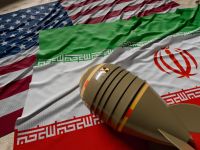More than 20 years after the last world oil shock, the West is once again up in arms over surging crude prices, leaving the oil group OPEC basking in an influence not seen for many a year.
The 11-member Organization of Petroleum Exporting Countries, which celebrates its 40th anniversary next week, is being pressed on all sides to do something about the surge, which saw prices almost triple last year.
The group, mostly developing countries clearly enjoying their regained importance on the world stage, is determined not to squander the benefits.
"We have to defend the interests of our people," said Venezuelan President Hugo Chavez last month during a tour of OPEC member states to prepare for a celebratory summit in Caracas at the end of September.
The Iraqi official newspaper, Al-Jumhuriya, declared Tuesday: "The upcoming OPEC summit raises great hopes of seeing the organisation transforming itself into an influential economic bloc, equipped with its own bodies."
The world has experienced two oil high-price shocks since OPEC was founded at a conference in Baghdad on September 10-14, 1960: in 1973 following the Arab-Israeli war, and in 1979 after the Shah of Iran's fall from power.
OPEC lost much of its muscle following the 1979 crisis, as non-OPEC producers like Britain and Norway with their North Sea resources flooded the markets with cheaper crude.
Apart from a brief revival in its fortunes after the 1990-91 Gulf War, the cartel mostly suffered from accusations that it was chronically divided, and unable to get a grip on demand levels and therefore control prices.
This climaxed in November 1997, when OPEC ministers agreed in Jakarta to open the oil taps despite the evident Asian economic crisis. Prices collapsed, leading to the record lows of less than 10 dollars a barrel in December 1998.
But the 1997 price slump apparently acted as a wake-up call.
In March 1999 it agreed to reduce production by 1.7 million barrels a day. Most members actually respected their supply ceilings.
The unexpected self-discipline impressed the markets. Prices rebounded, and spectacularly: within 12 months they had tripled to over 30 dollars per barrel, where they have remained for much of the time since.
This week prices rose above 32 dollars a barrel, flirting with highs not seen since the Gulf War.
For the last 18 months OPEC members have managed to maintain a long-lost unified front. Iran stuck its neck out in March, resisting US pressure to agree to cut production, but came back into the fold a few months later.
OPEC now produces nearly 40 percent of global oil supplies, in huge demand amid a revival of global economic growth. Stocks are also at record lows, leading to fears of shortages in the northern hemisphere's coming winter.
The price surge is fueling social unrest notably in Europe, where French demonstrators were again venting their anger on the streets this week.
Both previous global oil shocks produced economic shockwaves across the West. Some analysts predict that the current situation, if left unchecked, could produce another such shock.
"It can be argued that a third 'oil shock' began in March 1999 and is now gaining momentum," wrote Philip Verleger in the journal International Economics Policy Briefs.
A decision on the course of events now lies in the hands of OPEC members.—AFP.
©--Agence France Press.
© 2000 Mena Report (www.menareport.com)







